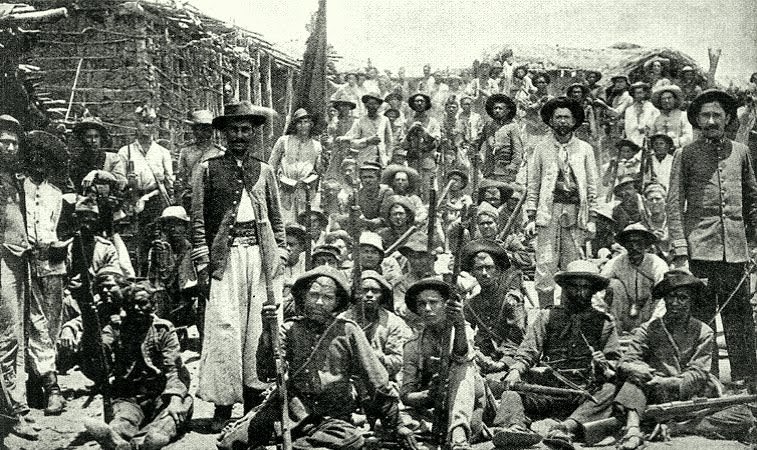ADVERTS
Oblivion transformed into Revolt
The northeast region of Brazil has always faced more problems than other regions of the nation. This was no different in the 19th century, at the time of the Canudos Revolt. The scenario in that environment was one of absolute poverty. Hunger, violence, abandonment of political control and diseases related to the lack of basic sanitation reigned among the people. Fanaticism for religion was mixed into the context. Due to the total lack of control of the place, in November 1896, in the backlands of Bahia, the revolt began.
The union of jagunços, country people and religious fanatics gained strength and was putting the integrity of the Republic at risk. It was necessary for the Bahian government to request help from federal troops to contain the rebels.
ADVERTS
The leader of the movement was known as Conselheiro. He was a leader who mixed control over separatist actions together with religious ideologies. He himself preached that he had been entrusted with the responsibility of acting under God's command to react to the social evils prevailing in the northeast.

Persuasive, Conselheiro acquired fame and brought together many people to fight his battle. Conselheiro's religious teaching ended up gaining such proportions that it began to be used by clever men who carried out thefts and robberies throughout villages, alleging religious reasons. In this way, the entire region was contaminated by violence, whether by the organized revolution preached by Conselheiro or by opportunistic looters.
Even with republican troops, it took four clashes to stop the rebels. Due to a lack of strategy, the soldiers of the religious revolution were unable to reacquire food, combat equipment and bandages during wartime. Some died of hunger.
ADVERTS
Mercilessly, the republican troops killed children, women and the elderly. The Canudos Revolt was remarkable for Brazilian history because it showed that even illiterate and miserable people, forgotten in the northeastern backlands, could organize a revolt based on religious principles and equipped with a leader who presented himself as sent from God.
The battles and the context of the movement were documented by the Brazilian writer Euclides da Cunha in the work “Os Sertões”.
